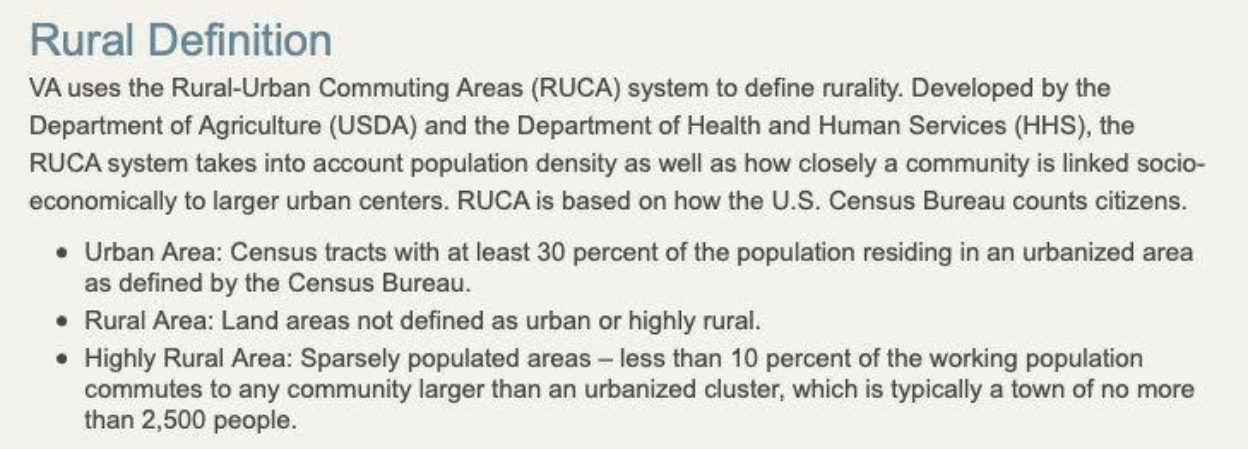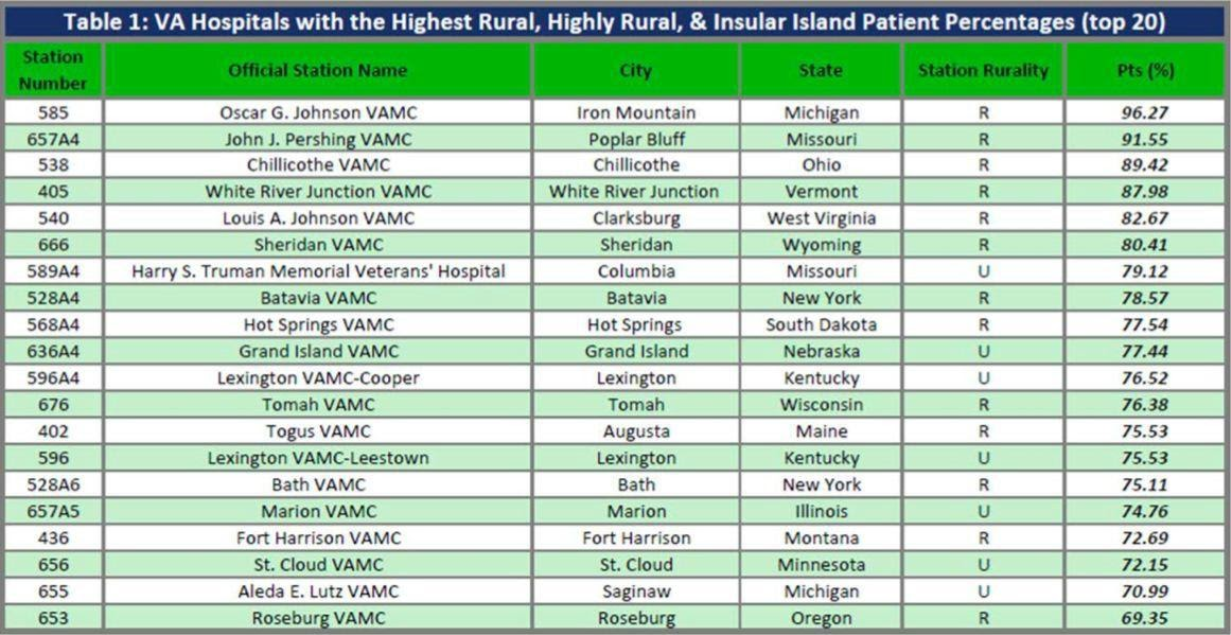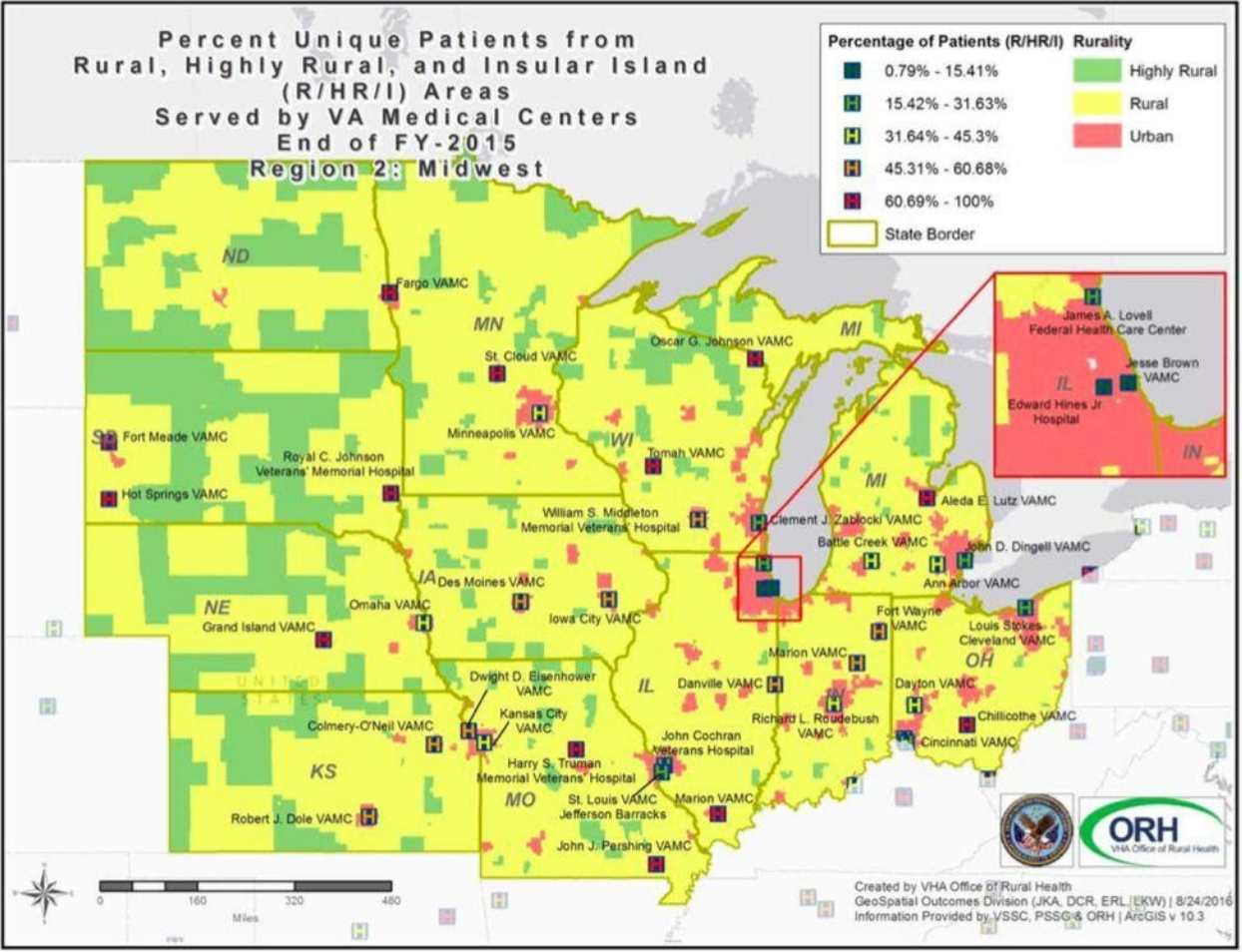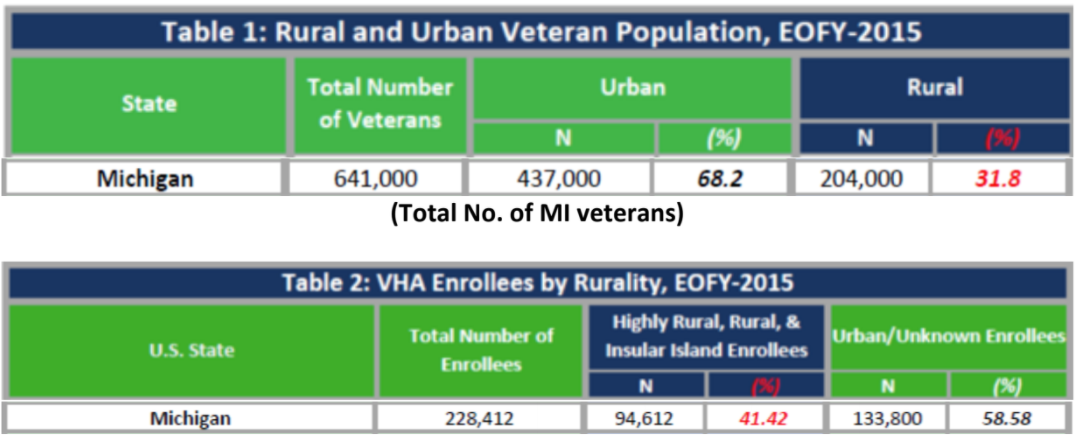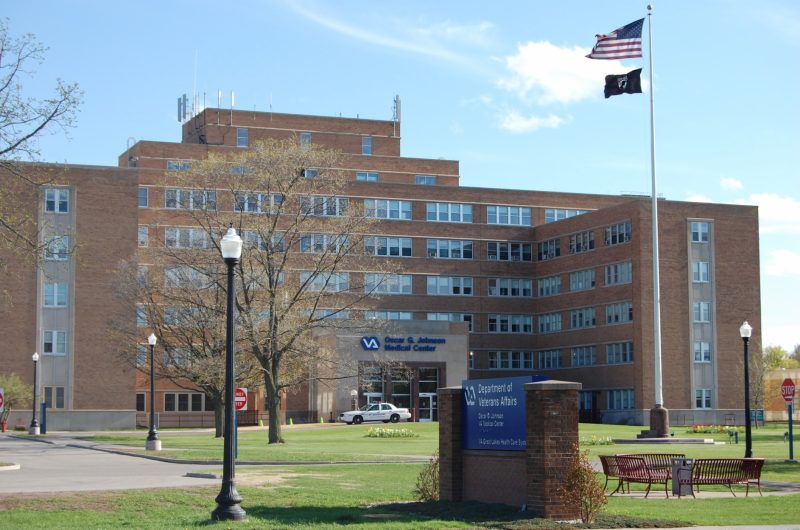Rural America and the Veterans of Michigan’s Upper Peninsula
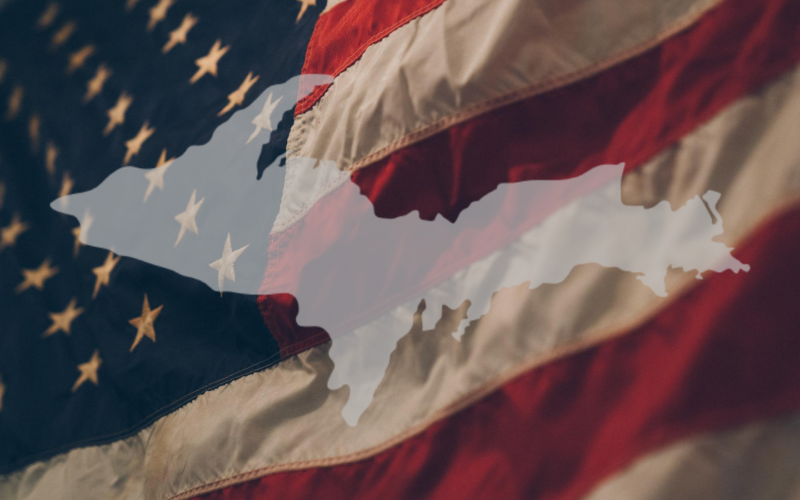
Living in rural America presents challenges, especially in regard to the Veteran Affairs’ efforts to provide veterans with easy access to quality health care. When compared to urban rates nationally, rural areas are more likely to have higher poverty rates. (Office of Rural Health)
Rural areas also tend to have more elderly residents, which contributes to a higher rate of residents with poor health. Rural areas additionally have fewer physician practices, hospitals and other health delivery options. Like their civilian counterparts, rural veterans face challenges that urban civilians and veterans do not have–like hospital closings, limited availability of viable housing, education, employment and transportation options.
Rural veterans often have limited access to broadband internet and generally have higher uninsured rates than urban veterans do. Geographic and distance barriers present obstacles to health care access for veterans, and in the Upper Peninsula (UP) of Michigan, inclement weather can also be a major issue. The purpose of this report is to develop a better understanding of the rural veteran demographic in the UP.
In 2015, the Upper Peninsula was home to about 300,000 residents, with a veteran population of roughly 27,300. (Veteran) All of the veterans who live here are considered “rural” veterans. There are nearly five million American veterans living in rural communities nationwide, however the veterans who live in the UP have the distinction of being served by the Oscar G. Johnson VA Medical facility in Iron Mountain, MI.
This particular VA Hospital is ranked first among the 152 VA Medical Centers for having the “highest rural and highly rural” patient percentages. According to the VA Office of Rural Health, 96.27% of the patients treated at Oscar G. Johnson hospital’s live in rural or highly-rural areas. In addition to the medical facility in Iron Mountain, the VA also operates five Upper Peninsula outpatient clinics in Hancock, Ironwood, Manistique, Marquette, Menominee, and Sault Ste. Marie. The VA also maintains a Veterans Center in Escanaba.
According to recent VA Compensation and Pension reports, there were about 28,078 veterans living in the Upper Peninsula as of 2018, which translates to 9.4 percent veteran/civilian population density. (FY2018 VA Disability Compensation and Pension Recipients by County of Residence). Taking this further, Michigan has a total veteran population of about 641,000, and 204,000 of these are considered rural. (Cowper)
So, of the 204,000 rural veterans statewide, the Upper Peninsula’s contingent of 27,300 rural veterans is 13.5 percent (Cowper). Considering that there are approximately 9.9 million people living in Michigan and 6.5 percent of them are veterans, the UP has a veteran population density about 3% higher than the state average.
According to the Veterans Affairs Office of Rural Health, rural veterans enroll in the VA health care system at a rate of about 58%, while urban veterans enroll at about 37%. However, Michigan is trending well below the national average with about 46% of rural veterans and 31% of urban veterans enrolled.
Further research is needed to acquire information more specific to the Upper Peninsula’s veteran enrollment rate, including data regarding treatment type and frequency rates at the hospital, community-based outpatient clinics, the Vet Center and its satellite offices.
(No. of MI veterans enrolled in VA Healthcare System)
References
Cowper Ripley DC, Ahern JK, Litt, ER, Wilson, LK (2017). Rural Veterans Health Care Atlas, 2nd edition FY-2015. VHA e of Rural Health, Department of Veterans Affairs, Washington, D.C.
Office of Rural Health, Department of Veteran Affairs, 2 Oct. 2019, www.ruralhealth.va.gov/index.asp.
“Rural-Urban Commuting Codes.” Economic Research Service, U.S. Department of Agriculture, Oct. 2019, www.ers.usda.gov/data-products/rural-urban-commuting-area-codes/.
“Veteran Population.” US Census Bureau, Department of Veterans Affairs, Nov. 2019, www.va.gov/vetdata/Veteran_Population.asp.
Newsletter
Related Articles

